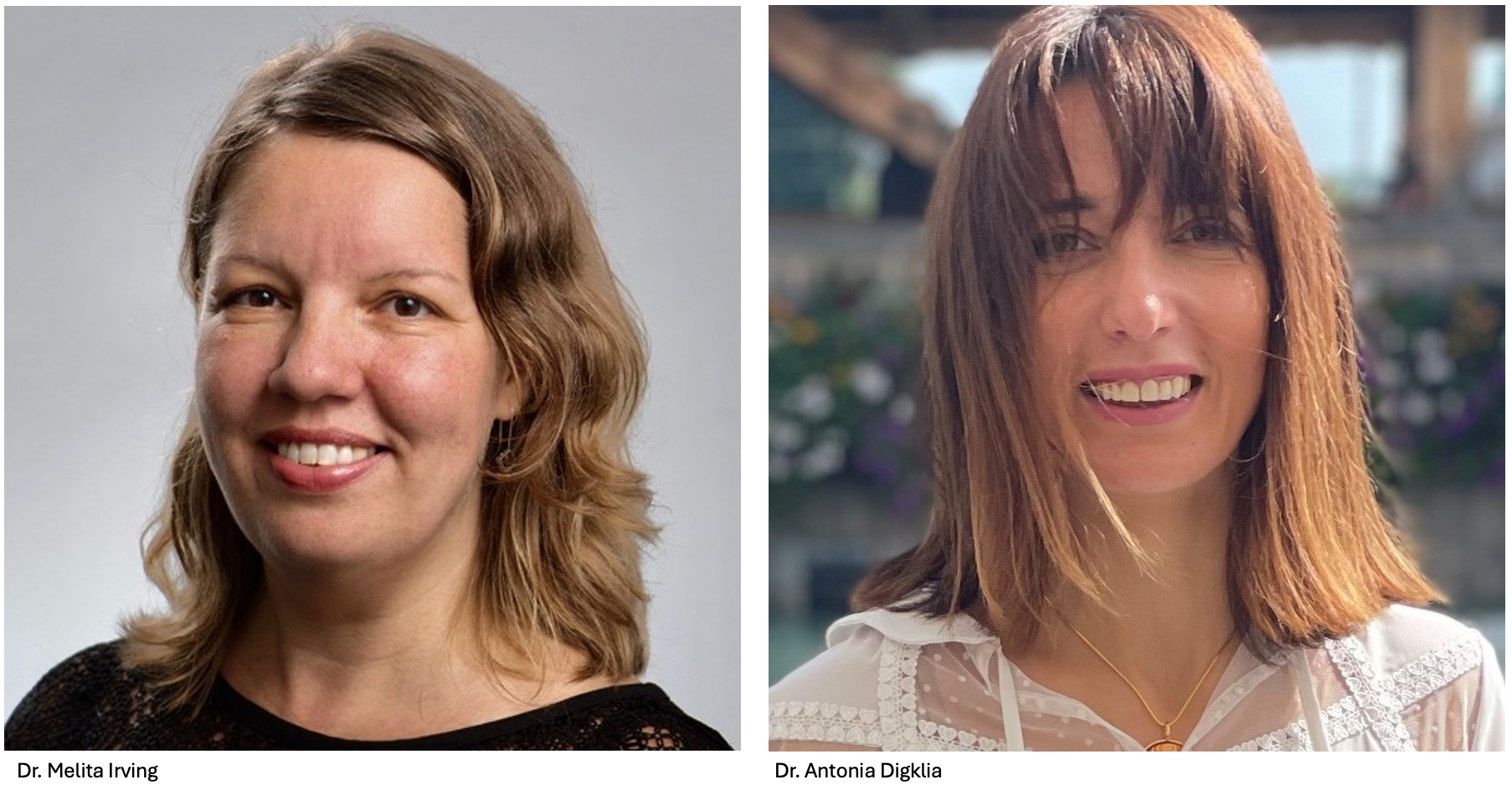Sarcoma – Dr. Antonia Digklia (CHUV) and Dr. Melita Irving (CHUV/UNIL)
Immunotherapy for sarcoma treatment

Sarcoma defines an uncommon group of cancers which arise in bones and connective tissue such as fat and muscle. In most cases, it is not clear what causes sarcoma, although family history and exposure to chemicals or radiation may increase risk. There are many types of sarcomas, many being particularly prevalent in pediatric patients, and symptoms depend on tumor type and location.
Current treatments are primarily surgery, radiation, and chemotherapy, yet these offer limited success, especially for advanced cases. There have been some promising results with targeted therapies, but unfortunately, responses are often short-lived. Moreover, immunotherapy, particularly chimeric antigen receptor (CAR) T-cell therapy, presents challenges due to the suppressive tumor microenvironment.
Dr. Digklia and Dr. Irving aim to address the limitations of current sarcoma treatments through a multidisciplinary approach. This will require them to deepen their understanding of sarcoma tumor characteristics, in order to subsequently design and create novel CAR-T cells tailored to sarcoma, and to test ways to enhance their efficacy.
Specifically, this team composed of one clinician and one basic scientist will:
- Characterize sarcoma biopsies from patients at the Sarcoma Center of the CHUV to understand the molecular source of tyrosine kinase inhibitor (TKI) resistance and the barriers to CAR-T cell therapy.
- Develop and engineer new CAR-T cells, targeting specific antigens (B7H3, GD2, and EphA2) for reactivity against sarcoma tissue, based on biopsies and cell lines.
- Optimize combinatorial CAR-T cell therapies for clinical translation, making use of TKIs or other drugs to enhance CAR-T efficacy.
Overall, the goal is to design new, effective treatments for sarcomas, and to test next-generation CAR-T cells that are designed based on their in vitro/in situ results. The scientists will genetically engineer new receptors for CAR-T cells and use their analysis to design new stratification tools for the tumors. Besides CAR-T engineering, they will also analyze the non-cancer tissue surrounding the tumor, to improve the CAR-T cells’ access to the tumor.
The proposed CAR-T targets are well-established and have been used in neuroblastoma, but here the scientists focus on a rare tumor of connective tissue origin, with a persistently bad prognosis. The project is innovative, meets unmet needs and displays a highly collaborative translational aspect with potential to improve the lives of patients living with untreatable sarcoma.

